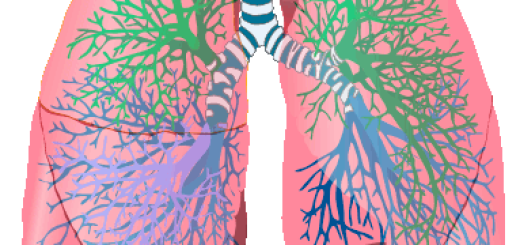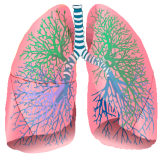
Thoughts are a mirage on the hot pavement of reality: the closer we look, the more illusory they are revealed to be. Pleasant thoughts seduce us into believing their authenticity. Anxious thoughts appear real by casting a fearful shadow. But without emotional investment, thoughts are transient objects that flash in and out of existence, largely of their own accord.
I have Obsessive-Compulsive Disorder (OCD). If thoughts were the gears on a bike, then OCD would be a rusted chain. Normally our mind is a well-oiled machine that leaps from thought to thought with minimal hesitation. But with OCD, the chain is rusty and it is profoundly difficult to shift gears away from certain thoughts. We end up circling the same thought, unable to move on.
Everyone obsesses from time to time. We are an anxious species, and there is a great deal to worry about. OCD is not qualitatively but quantitatively different from the “normative” obsessions involving our finances or the possibility of an illness. The anxiety associated with paying bills or disease motivates us to make money and stay healthy. Some anxiety is adaptive. Too little or too much is maladaptive.
OCD has a way of making the mirage of our thoughts appear more real than it actually is. The fear that one’s thoughts represent reality is exemplified in OCD. For example, a common obsession in OCD is that we have caused a traffic accident without being aware of it. We drive by a car going in the opposite direction and have a fleeting thought that the gap between our cars was uncomfortably small. After a few miles this thought snowballs into the conviction that our cars were so close that the other driver had to swerve to avoid the impact. We imagine that this phantom car ran off the road into a ditch and it was our fault. In its extreme form, people with OCD will have to turn around and backtrack their route to confirm that the other car did not experience an accident.
In this extreme form, the fear that our thoughts represent reality is easily recognized as unrealistic. And yet, our more “normative,” day-to-day thoughts are treated as fact rather than the static charge on a busy mind that they actually are.
Many of us think we are unattractive, unlovable, or undeserving. These thoughts pass through our minds daily, accepted as truth without question. And yet these thoughts are no more real than the phantom car we ran off the road.
OCD has forced me to separate my Self from my thoughts in order to survive. I have learned to accept the inevitability of obsessive thoughts and not to fight them. I have also learned that the Self is separate from the thoughts it observes. I am the subject, my thoughts the object. Because Self and thought are separate entities, they do not depend on each other for survival. I can let my thoughts run their course without any threat to my Self.
 When we gain this distance from our thoughts we can pick and choose which ones we lend our attention to. Attention is the fuel for our thoughts. We learn in meditation that repeatedly bringing focus back to our breathing deprives thoughts of the fuel necessary to dominate our minds.
When we gain this distance from our thoughts we can pick and choose which ones we lend our attention to. Attention is the fuel for our thoughts. We learn in meditation that repeatedly bringing focus back to our breathing deprives thoughts of the fuel necessary to dominate our minds.
We can extend this knowledge to our non-meditative practices. If we experience a thankful thought, we can strengthen it with our attention. And if we are disturbed by an anxious thought, we can direct our attention elsewhere, allowing it to naturally pass into nonexistence.
Thoughts are only waves. By accepting their inevitability and giving them space to exist, we can become the ocean. Pleasant and unpleasant waves will pass while we rest in the totality beneath. Without opposition the waves quiet in intensity, and we develop a profound calm that can contain the strongest storms.
“Planets orbit the sun. Forms orbit the mind.”
~ 365 Tao: Daily Meditations by Ming-Dao Deng
REFERENCES
Deng, Ming-Dao. 365 Tao: Daily Meditations. San Francisco: HarperSanFrancisco, 1992. Print.



![MRI by Nevit Dilmen / [CC-BY-SA-3.0 or GFDL]](/wp-content/uploads/2014/07/brain-color-e1406157479540-160x160.jpg)






Excellent article. Thought provoking . Thanks.
Thanks so much Patty! Appreciate you taking the time to read my article and so glad that you enjoyed it.
beautiful.
Do you take medication in addition to mindfulness?